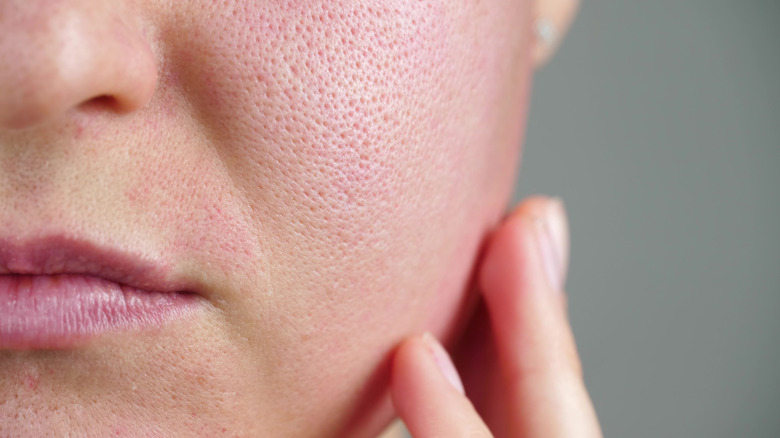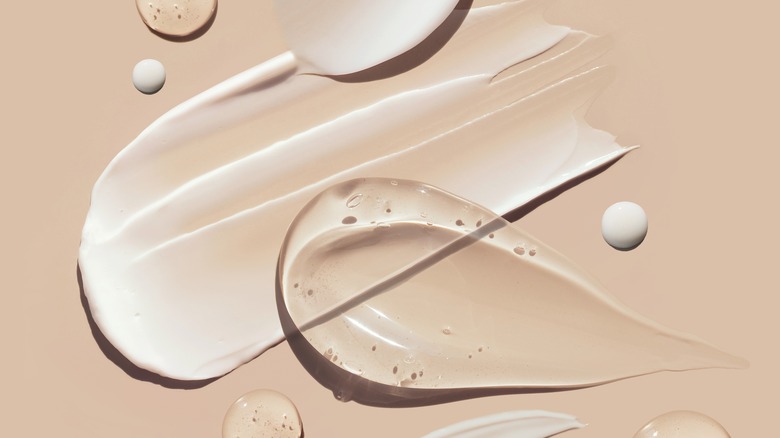Is There A Difference Between Hydrating And Moisturizing Your Skin?
Ask any dermatologist what your skin needs to glow and thrive, and you'll probably get two resounding responses: hydration and moisture.
For most people, these are interchangeable, and it's not hard to see why. Both terms relate to liquid, making people think they're one and the same. After all, if your skin is hydrated, doesn't that mean it's moisturized, too? As it turns out — not quite. Just as dry versus dehydrated skin are different, hydrated and moisturized skin are two separate things as well.
The confusion likely comes from the deluge of products promising to deliver the same effect. If you take one look at the skincare section of a beauty store, you'll find that it's packed with creams, serums, and oils that are supposedly formulated to make your skin more supple by way of hydration and moisturization. But before you pick up yet another tub of face lotion, it's important to understand what they do for your skin. Start by gaining a deeper understanding of how hydration differs from moisturization.
Hydration vs moisturization in a nutshell
The terms "hydration" and "moisturization" are often used synonymously in the beauty space, but they mean different things. At the core, Medical News Today notes that hydration is more related to water, while moisture is more related to oil. Hydration, as you can tell by the word itself, refers to drawing water to the skin, while moisturization is all about ensuring that the skin actually retains water.
The same thing goes for products that claim to deliver hydrating and moisturizing benefits. Board-certified dermatologist and Mount Sinai Department of Dermatology instructor Meghan Feely told Shape the key difference between the two. "Hydrating products hydrate your skin cells, i.e. increase their water content," she said, adding that, on the other hand, products that promise to deliver moisture primarily work to prevent what is called "trans-epidermal water loss" or water that evaporates from the skin due to external factors.
It's also worth noting that rather than thinking hydrating and moisturizing products perform different functions, remember that they work in conjunction with one another. They work hand in hand to keep your skin barrier healthy.
How to know what your skin needs
Make no mistake. Your skin needs to be moisturized and hydrated at the same time. But if you wish to know if you're lacking one or the other, aesthetician and Glowbar co-founder Rachel Liverman told Coveteur that you should focus on your skin's texture. Dry skin has a flaky appearance, while dehydrated skin looks duller. If your under-eye circles are darker and your eyes seem tired, you may also take it as a sign of dehydrated skin.
"If a client's skin is presenting as dry (lacking oil), we choose a moisturizer with more humectants and emollients," added Liverman. "If a client's skin shows signs of dehydration, we choose serums with hyaluronic acid, niacinamide, and ceramides."
While it also seems like a no-brainer to drink more water to hydrate the skin, more is needed to maintain hydration and moisture. You still need supporting products to thrive. "The solution is topical rather than internal," NYC-based dermatologist Dr. Joshua Zeichner told Real Simple. "Rather than drinking water, applying a moisturizer is a far more effective way of addressing dry skin."


